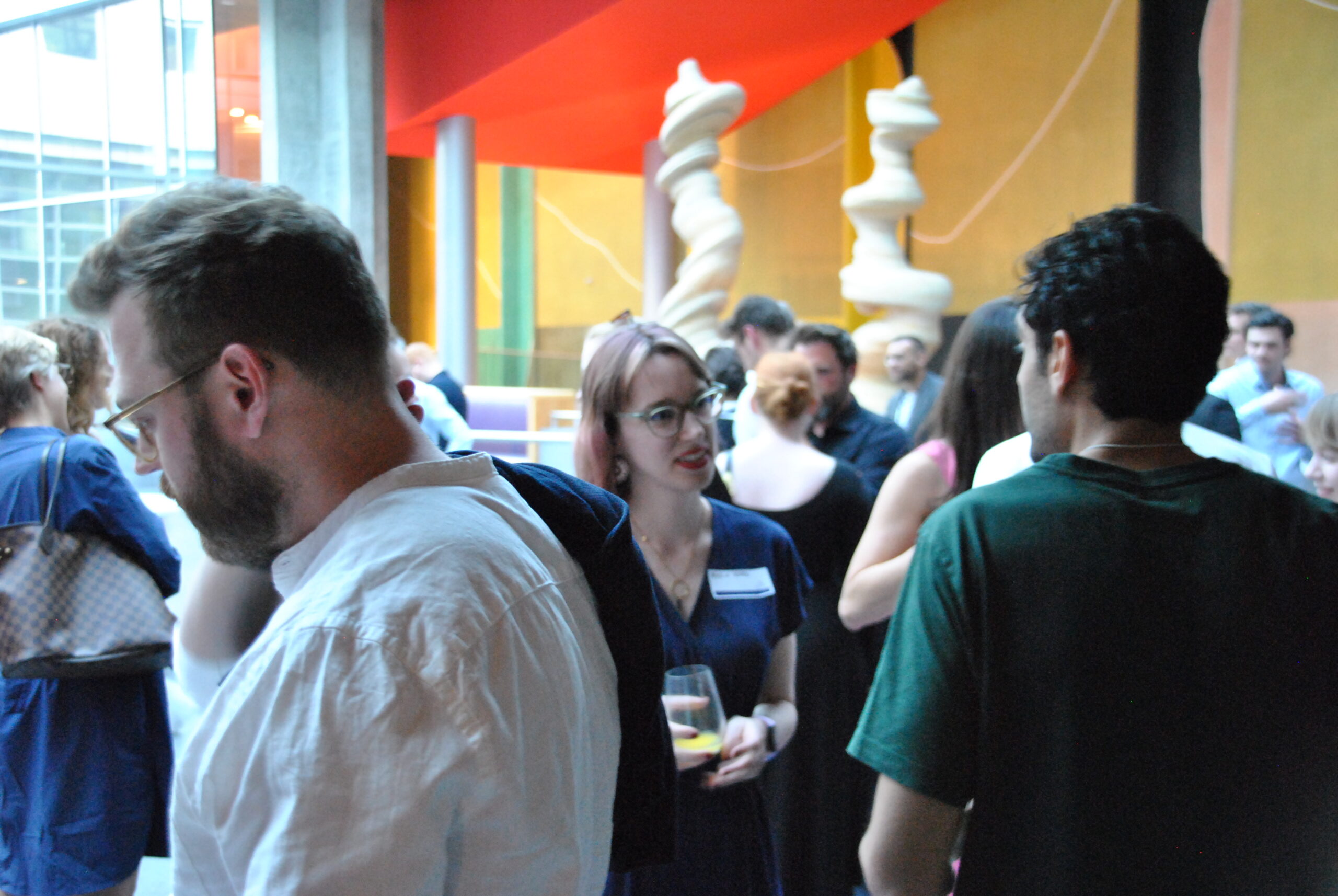"We need to ensure that startups can grow here in Europe"
Real change does not come from an individual, but from unencumbered communities with original thought. This is all the more true in the climate tech sector. And a community does not stop at national borders. Since last year, Carbon13 has operated not only in the UK, but also in Germany and the EU. We have now launched the second cohort of our Venture Builder Programme for the climate emergency in Germany, with founders from more than 30 different countries.
In Cambridge, we have a tradition of ending the first phase of our Venture Builder Programme with a garden party. In Berlin, we do it in the winter garden of the British Embassy. We reckon that also counts as a garden party. Here, together with our partner World Fund, we celebrated the community, the entrepreneurial spirit, and bridge building.
An essential part of the Garden Party is a keynote speech, which provides food for thought for networking later on. We are very grateful that this year we had not one, but two great speakers, who gave us the macro perspective on German startup strategy and UK science transfer.
“Germany will have a decisive, if not the decisive, say in the decarbonisation of Europe”
The first to go was Kathryn Boyd, Country Director, Trade, Germany and Deputy HM Trade Commissioner for Europe. She pointed out that Germany will have a decisive, if not the decisive, say in the decarbonisation of Europe, “which is why want to work ever more closely together”. As an example, she cited that the UK has chosen Germany for the location of their first ever overseas tech accelerator and will be bringing six startups over to Stuttgart to showcase British talent.
In view of the political tensions in Europe (and in many countries in the rest of the world), she stated that one of the biggest risks to Western leadership on Climate Change comes from within. People are being asked to make sacrifices but they are not feeling the benefit in their livelihoods. It is essential, therefore, to win public support for climate policies through stronger communication and policies which bring prosperity. A key aspect of this is protecting British and European intellectual property, in order to turn it into local societal growth.

“We need to ensure that startups can grow here in Europe”
The second Keynote was led by Dr Anna Christmann, Aerospace Coordinator of German Federal Government and the Commissioner for Startups and the Digital Economy at the Federal Ministry of Economic Affairs and Climate Action. Dr Christmann gave a status report on the German startup strategy and presented the upcoming milestones. In Germany, five to ten startup factory regions are to be created around the country’s best universities, so that the transfer of knowledge and science can succeed in combination with private money and public investment.
In many respects, the UK is a role model for turning research into innovation. In 2022, there were 20,000 patents in the UK and 60,000 in Germany, but in the same year only 550,000 companies were founded in Germany compared to over 800,000 in the UK.

Dr Christmann made it clear that, despite the international reputation of the German start-up scene, the German venture capital market is too small – both in an international comparison and in relation to Germany’s economic strength. This gap shall be closed by the so-called Future Fund, a 10 billion euro fund that also includes a DeepTech and Climate Fund. The fund has one billion euros available for investments in climate tech start-ups — when private co-investors take the lead.
She also emphasised that there is room for more women in the deep tech and climate tech community. The new programme EXIST Women aims to support women in the early stages when they are thinking about starting a business. “Women tend to think more before they take the plunge. This fund is designed to help them take that step.”
“Europe understands that innovation in climate tech is the future, these are the building blocks”
The many insights from the keynote were continued in a panel moderated by Carbon13’s Head of entrepreneurshp Stephanie Alys. Voices from science, politics, and investment addressed the big question of what is holding back climate tech in Europe and where Germany and the UK are leading the way. Martin Rahmel, Director of the Chemical Invention Factory at TU Berlin, stressed the need for a change in behaviour in universities. “It should be an obligation for researchers who are funded with public money, when they find something, to bring it to market, to let young people know that it is there so that they can scale it up.”

Kathryn Boyd emphasised that the UK is reforming its planning and permit laws to enable quicker change and development of infrastructure, like connections from national grid to wind farms. “It was impressive how quickly and radically Germany managed to cut its reliance on Russian oil, through taking a crisis response approach and suspending some normal permitting processes to ensure it could be fast.” This efficient crisis mode, and communication based on rapid implementation, are also needed to combat global warming.
Morgan Sheil, Head of Impact at World Fund, underlined the positive conditions that prevail in Europe. “Some people in the US, even in climate funds, are still sceptical about climate tech – they just don’t get it. Europe understands that innovation in climate tech is the future, these are the building blocks”.
Michael Langguth, Co-founder and CSO at Carbon13, wished that society had a better understanding of all the potential that exists in climate tech. “There would be a different willingness to take risks to promote innovation and perhaps also a more positive view of the future.”
We would like to thank all participants and especially the keynote speakers and panellists, as well as the British Embassy and our partner and co-host World Fund. We look forward to the third Winter Garden Party. Three will make a tradition.

